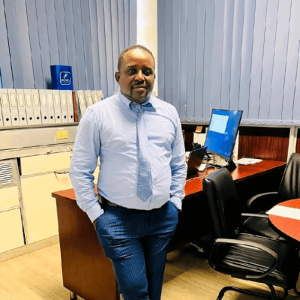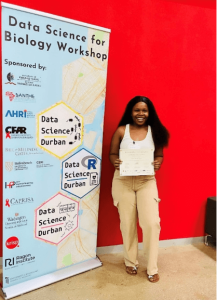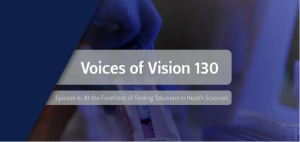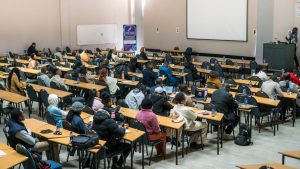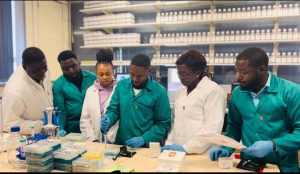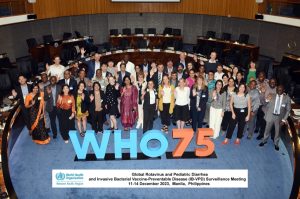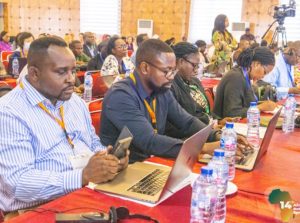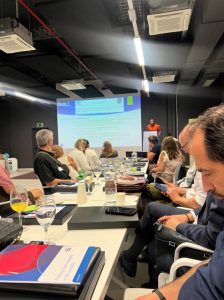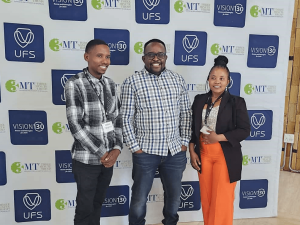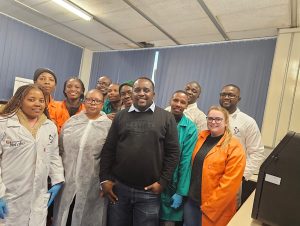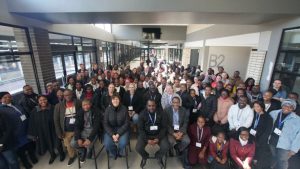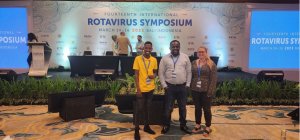Dr. Peter Nthiga Mwangi, a postdoctoral research fellow at the UFS-NGS Unit has upscaled rotavirus genomics research. He has recently published three articles, two on G2P[4] rotavirus strains from South Africa and Zambia each, and a G8P[4] rotavirus strain from Rwanda in high impact factor journals; Microbial Genomics, Viruses and Pathogens (recently accepted manuscript), respectively. These are collaborative studies under the African Enteric Genome Initiative (AEVGI) and the World Health Organization Collaborating Centre (WHO CC) for Vaccine Preventable Diseases (VPD) surveillance and pathogen genomics initiatives in collaboration with partners from other institutions in Cameroon, Ghana, Malawi, Rwanda, South Africa, and Zambia. Other UFS-NGS co-authors are Ms. Robyn-Lee Potgieter, Mr. Milton Mogotsi and Prof. Martin Nyaga (senior/corresponding author).
The key findings for these studies include:
- Identification of pre- and post-vaccination sub-lineages for the South African G2P[4] strains that explored samples that were collected seven years before and seven years after rotavirus vaccine introduction in South Africa. This finding was interesting as there has been a considerable concern about evolutionary selective pressure exerted by the widespread use of rotavirus vaccines.
- Uncovering that Viral Protein 3 (VP3) genome segment in the Zambian G2P[4] strains was under positive selection at amino acid site seven. The finding contributes insightful information about the evolution of G2P[4] rotavirus strains which have been suggested to evolve in a dynamic fashion.
- Identification of reassortment events of Rwandan G8P[4] strains in the VP1 and VP3 genome segments with the bovine and RotaTeq vaccine WC3 bovine genes. The findings indicate that reassortment events with vaccine strains play potential role in evolution of rotavirus strains.
These outputs offer valuable insights into the genetic composition of post-vaccine G2P[4] rotavirus strains in South Africa and Zambia and G8P[4] strains from Rwanda and reinforce the importance of continuous surveillance to combat the spread of these infectious diseases.
The links to access the published articles can be found here: https://pubmed.ncbi.nlm.nih.gov/35446251 ; https://pubmed.ncbi.nlm.nih.gov/36851715/
Dr. Mwangi is currently working on other rotavirus outputs based on Zambian G2P[6], G9P[8] and Rwandan G12P[8] rotavirus strains and will aim to have a total of six first-author manuscripts in 2023, that will enhance information on the evolution of these strains and post-rotavirus vaccine surveillance at whole genome level in Africa.




